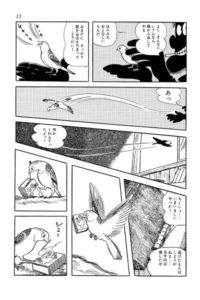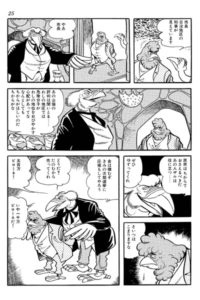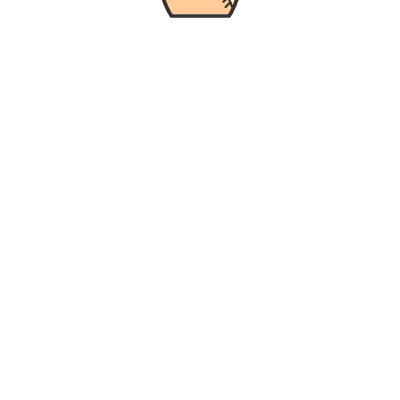Tomorrow the Birds (Manga)
Also known as 鳥人大系 (Chōjin Taikei)
| English Title: | Tomorrow the Birds |
| In English? | Yes |
| Japanese Title: | 鳥人大系 Chōjin Taikei |
| Type: | Anthology |
| Original run: | 1971/03 – 1975/02 |
| Published in: | SF Magazine SFマガジン |
| Published by: | Hayakawa Shobo |
| Volumes: | 2 (MT-094 | MT-095) |
Tomorrow the Birds (1971-75) is a collection of loosely connected but independent short stories which revolve around the theme of birds steadily become the dominant species on Earth. They were originally published in SF Magazine from March 1971 to February 1975.
What it’s about
The story opens with an unusual bird attack on humans. As birds develop the ability to harness fire and start burning houses and homes, events begin to take on a serious edge. Matters continue to escalate until eventually, a highly intelligent leader of the birds appears and begins to make demands to the humans.
The cause is eventually tracked to a request by Professor Doblood to the Special Assessment Committee in far away space. The request is as follows: On the third planet in the Zora system, known locally as “Earth”, there are a group of creatures called ‘birds’ who are the true heirs of evolution and who should be given the title ‘humanity’. However, the birds are presently being oppressed by a group of pseudo-human apes of low intelligence. Prof. Doblood seeks the committee’s support and co-operation in correcting this distorted evolution. And so, with the evolutionary course correction in place, the birds begin a steady rise up the ladder in order to take their rightful place as the new rulers of Earth… and the humans as their chattel.
What you should know
The origins of Tomorrow the Birds (1971-75) can be traced to Tezuka’s great love of science fiction. As he stated in the Afterword of his Osamu Tezuka Complete Works edition (MT-095), “Just like everyone else, I was a passionate fan of Bradbury’s ‘The Martian Chronicles’ and Simak’s ‘City’. I wanted to depict a history of super-humans using an episodic format like those” (1980, p.252).
However, since he’d already introduced the Epumu, a race of human-like birdmen in The Adventure of Rock (1952-54), he decided to open the story in a more “casual and quiet manner.” So, even though he had previously written a short story collection titled “SF Fancy Free” in SF Magazine, for Tomorrow the Birds (1971-75) he decided to write a full-length story.
Tomorrow the Birds (1971-75) has been described as a “satirical eco-fantasy” that echoes many of the issues of modern society. One example of this is the eventual appearance of discrimination in birdmen society. Tezuka takes great pains to establish the idea that the birds, and not humans are the true evolutionary winners – first by showing their humblest of beginnings and then a step by measured step building up the utopian aspects of their social development. However, by introducing the concept of discrimination between insect eaters and meat eaters, he demonstrates that even the most perfect of societies are doomed to fail when distrust grows from difference.
Another example is how Tezuka allows the concept of religion – another echo of humanity – to begin to appear in birdmen society through the introduction of the Christ-like birdman known as Saint Pololo and a human who accompanies him, named Mahria.
Tezuka would often use thinly veiled “stand-ins” – such as the fight for robot rights as an allegory for human rights in Astro Boy (1952-68) – in order to express his views. However, in Tomorrow the Birds (1971-75), his commentary feels more like a critique. These stories act as a harsh parody and satire of the history of humans along with modern human society. This can be seen in how Tezuka explores the concept of colonization through the tale of Geronimo, the leader of a band of humans who resist the Birdmen in a manner eerily similar to the 19th century conflicts between American settlers and Native Americans.
Incidentally, for whatever reason, during its original publication, Tomorrow the Birds (1971-75) received some attention overseas, with some readers sending Tezuka fan letters. Always acutely attuned to his fans, he incorporated more western-style imagery and English onomatopoeia into the work as a tip of the hat to his foreign fans.






